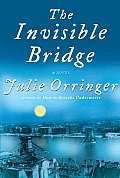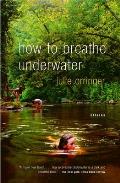
A young man, bleeding, lay in fresh snow by the side of the road. He'd been struck by a German jeep as he fled the Nazis, who were fleeing the Russians; this was on a highway near the Czechoslovakian border in November of 1944. How long the man had lain there he didn't know; from the road he could still hear the sound of tires grinding on ice and gravel, but the jeep that had struck him had roared off into darkness long before. He closed his eyes and drifted away from the noise and cold. Sometime later he woke to the sound of German voices: two men in Austrian Wehrmacht medic's uniforms bending over him, asking his name. He couldn't move, couldn't speak. The men picked him up, loaded him onto a stretcher and into an ambulance, and took him to a military hospital in a town called Kassa, where they left him in the care of a Yugoslav doctor named Karoly Dobek. Over the next four weeks this doctor nursed him back to health, until the hospital was evacuated by the Nazis and the young man was loaded onto a train bound for a camp in the occupied territories.
The man was my grandfather, and this was one of the stories he told me 10 years ago when I started researching a novel that took place in Europe during the Second World War. The novel originated from a conversation at my brother's college graduation. One minute I was telling my grandfather about a trip I'd planned with my boyfriend (Two weeks in Florence! Two in Paris!); the next, my grandfather was telling me that he'd spent two years studying architecture in Paris as a young man, and that he'd had to leave school when he was conscripted into the Hungarian forced labor service at the beginning of the war. I'd never known he'd studied architecture, or even that he'd been to Paris; my knowledge of what had happened to him during the war was a series of hazy sketches, a composite of whispered stories I'd half-overheard my grandmother relating to friends and the Holocaust documentaries I'd watched in Hebrew school. I started asking my grandfather about Paris and what had happened afterward, and before long I began to take notes. I wasn't sure yet what the notes would become, but there was an urgency behind his telling of this story that reminded me of certain novels I loved.
It was another two years before I began writing the book that would become The Invisible Bridge. The novel was, to put it mildly, a departure from anything I'd written before. The short story collection I'd just finished was about young women stumbling through adolescence in contemporary America — going to awkward ballroom-dancing classes and nightmarish Macrobiotic Thanksgivings, taking scuba-diving lessons after a near-drowning, having sex for the first time in suburban bedrooms. The novel was set in Budapest and Paris between 1937 and 1946, had a male protagonist, and sent its characters into a hell of forced labor and dehumanizing privation. And the project was all the more daunting because so many other writers had recorded the fate of the Jews of Europe during the war and because the story belonged to people who were still alive, who would know whether what I wrote was false or not.
Of course, that was also what made it possible to tell the story at all. I could talk to my grandparents and their siblings; I could go to Hungary and speak to people who had been there during the German occupation. With a painful sense that time was running short, and that the people who could tell the stories might not be able to tell them for long, I traveled to Miami and Manhattan, to Budapest and Paris, transcribing narratives and recording unthinkable experiences. My responsibility, I'd decided, was to learn all I could about what had really happened; this was one of those situations where knowledge of the truth seemed essential to the making of fiction. And my grandfather's story seemed the most essential of all. Though the narrative of the novel I'd begun to write had already diverged from my grandfather's, his experience was at its heart.
 And that was where a deeper complication entered: my grandfather, in his mid-80s, had begun losing his memory. A series of microscopic strokes was stripping his brain of its short-term recall and encroaching on the deeper memories as well. His stories crystallized into impermeable forms; he could retell them as he'd told them many times before, but when I tried to learn what lay beyond the edges of the frame, when I tried to fill in details and understand causalities, he'd fall silent. Sharp disembodied fragments floated through our conversations: the skates he'd worn as a child, he told me, were carved from wood and edged with flattened wire filed sharp to make a blade. The apartment where he'd lived in Budapest had had a green door and an ornate wrought-iron balcony. On Bastille Day in Paris in 1938, in a dense crowd at the Place de la Bastille, he'd met a girl who had the same first name as him, who was also an architecture student, and who lived just next door to his own building.
And that was where a deeper complication entered: my grandfather, in his mid-80s, had begun losing his memory. A series of microscopic strokes was stripping his brain of its short-term recall and encroaching on the deeper memories as well. His stories crystallized into impermeable forms; he could retell them as he'd told them many times before, but when I tried to learn what lay beyond the edges of the frame, when I tried to fill in details and understand causalities, he'd fall silent. Sharp disembodied fragments floated through our conversations: the skates he'd worn as a child, he told me, were carved from wood and edged with flattened wire filed sharp to make a blade. The apartment where he'd lived in Budapest had had a green door and an ornate wrought-iron balcony. On Bastille Day in Paris in 1938, in a dense crowd at the Place de la Bastille, he'd met a girl who had the same first name as him, who was also an architecture student, and who lived just next door to his own building.
I typed and typed as he spoke; every detail, even the unconnected ones, seemed important. They were a part of who he was, this man who'd peeled mangoes for me in his garden when I was little, and who'd danced with me at my wedding. But the details I felt I needed most, the ones that would help me understand how he'd managed to survive, had become inaccessible. I kept coming back to the story about his having been struck by a jeep on the Czechoslovakian border in November of 1944. Who had saved him? The Austrian Wehrmacht. What was the name of the place where this had happened? Kassa, K-A-S-S-A. And where had he been treated? A military hospital. But Kassa wasn't a name I could find on any map, and I knew the Austrian Wehrmacht wasn't in the business of saving injured Jews, and forced labor inmates weren't nursed back to health at military hospitals.
In the last months of his life, in the stories my grandfather told, he went back again and again to Paris and Budapest and the Hungarian labor camps and the miraculous coincidences and convergences that had delivered him through the war. He led me over and over again through memories that brought pleasure and pain. He seemed to know what was happening to his mind, seemed to feel an urgency to tell as much as he could while it was still possible. The last time I saw him, he sat up in his hospital bed and looked around urgently as if for something he'd misplaced. He turned to the nurse who stood at his side and said, "You see my granddaughter is here! Where is my coat? I have to get up and dress. We are leaving this afternoon for Budapest."
When he died in November of 2006, thousands of questions remained unanswered. My knowledge of the history still felt spongy, incomplete. It would be another three years before the novel was finished, years during which I would struggle to find answers and to piece together the facts. Eventually I learned that Kassa was the Hungarian name for the place that is now called Kosice, on the Slovakian border; it was my grandmother who told me this, and who filled in many other missing pieces. The Austrian Wehrmacht, she said, must have picked up my grandfather because they didn't know he was a Jew. At some point as he fled along that military road he must have stripped off the yellow band that had marked his sleeve; the rest of his clothing had deteriorated to the point at which it wouldn't have marked him with any particular nationality, status, or loyalty. By the time the Austrian medics found him he was nothing more than a man in a ditch on the verge of death, and they'd taken it upon themselves to save him. I learned, too, that the hospital where my grandfather had been treated was staffed by nuns who didn't inquire into their patients' nationality or religion; a web search yielded a recent photograph of the building, whitewashed and austere, casting its long shadow on an overgrown lawn.
In the end, though, the facts could only tell so much. I'd spent years looking for the logical conditions that might explain how my grandfather, and the fictional character who was his namesake, might have survived. But during that war, as in more recent ones, logic was largely held in abeyance; illogic was what was killed and saved human beings. Of course it was true that no member of the Austrian military was supposed to save a Jew's life, nor the life of an unidentified man who might or might not be a Jew. Forced laborers weren't supposed to be treated at military hospitals. Nor should my grandfather have survived the many disasters that followed. But there were people who refused the conditions of the New Order, or quietly acted against them despite the possible consequences. And there were people like my grandfather, caught in a stream of unimaginably horrible events, who might have despaired but who refused to do so. This was what my grandfather was trying to tell me, it seems, as he repeated those stories — that the events he was describing had happened despite the fact that they made no sense; in that powerful despite, the evidence of human nature lay. To that illogic I owe my existence.